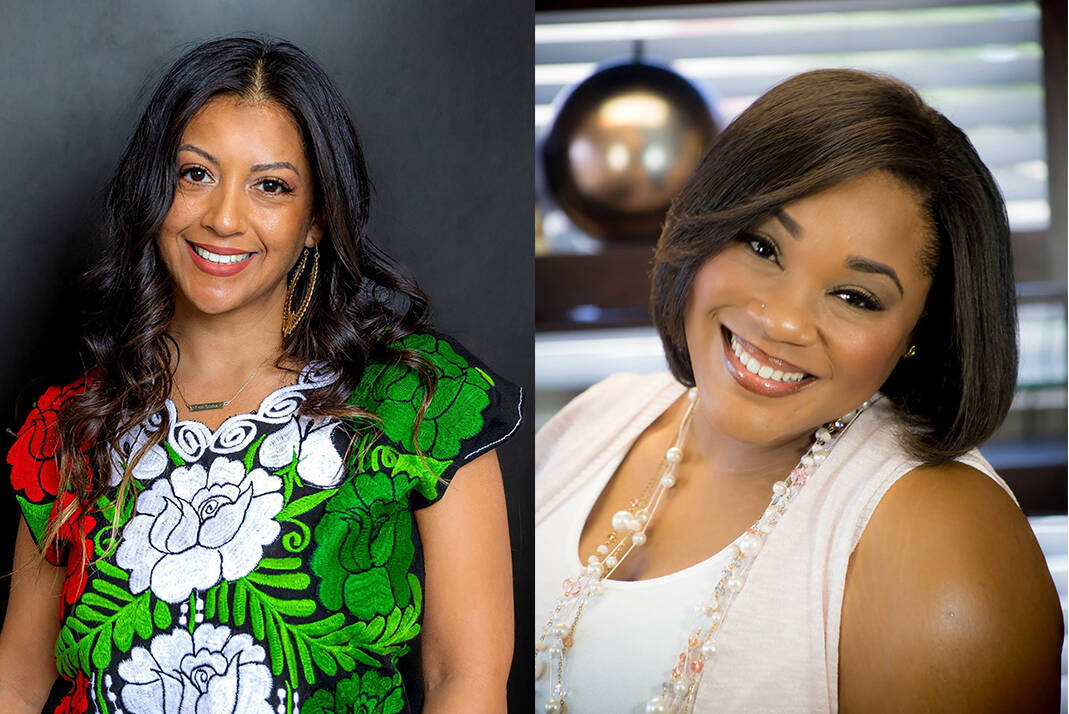Raising awareness in BIPOC Mental Health Month and beyond
July is Bebe Moore Campbell National Minority Mental Health Awareness Month, also widely known as BIPOC (Black, Indigenous and People of Color) Mental Health Month.
Campbell was a notable author and journalist who openly wrote about mental health struggles within her family. In May 2008, the House of Representatives named July as the month honoring her legacy with the purpose of spreading awareness of the unique challenges that communities of color experience when it comes to mental health.
Mental health has not always been talked about within communities of color, but that narrative is slowly starting to shift. More organizations, advocates and providers have made a concerted effort to spread awareness, especially in July. Mental Health America’s 2023 BIPOC mental health campaign is centered on community, culture and connection.
Las Vegans making an impact
In Las Vegas, two women who embody community, culture and connection are Dr. Sandra Leon-Villa, a licensed clinical psychologist who specializes in liberation, clinical and neuropsychology and who owns Innovation Behavioral Health Solutions, and Dinisha Mingo, a doctoral candidate and the owner-founder of Mingo Health Solutions and Solutions of Change.
I interviewed them about BIPOC Mental Health Month and about some of the great work they are doing in the community.
Leon-Villa feels strongly about decreasing the disparities that exist within BIPOC communities.
“July is important and significant because it is a time we get to amplify BIPOC mental health, and it is definitely something that needs to be acknowledged on a day-to-day basis because we (BIPOC communities) experience so much.”
Leon-Villa elaborated on the importance of this month, saying, “It is time that we give more of a focus and be more intentional about highlighting different issues that happen within our communities, including cultural nuances and differences, and things that people of color experience.”
Mingo agrees about the significance of awareness in July and beyond.
“Historically, individuals from BIPOC communities have been marginalized and disadvantaged when it comes to accessing mental health care,” she said.
Mingo has been a champion for ensuring mental health services are accessible for all. She created the nonprofit Solutions of Change, where she has been able to apply for grants that help fill gaps in the community. “We saw a lot of the working class coming to us, such as that 18-26 population who may not be on insurance anymore, or they are working and cannot afford insurance,” Mingo said.
There has been a shift over the years with more people of color seeking services and support for their mental health. In Southern Nevada, more BIPOC providers are entering the mental health field and opening up about their own mental health struggles.
“We have more access with technology, more representation of people being open about their mental health issues, including mental health professionals,” Leon-Villa said. “We (BIPOC clinicians) are no longer a blank slate, are acknowledging we are people that have our own struggles.”
That resonates with me as I live with post-traumatic stress and have been more open over the past two years about sharing my lived experience. I have noticed more men of color open up about their mental health struggles when I have normalized my own experience.
Cultural diversity training
Leon-Villa has been at the forefront of advocating for legislation that would require mental health professionals to obtain a minimum of two hours of cultural competence, diversity, equity and inclusion (DEI) training for license renewal. In May 2021, Assembly Bill 327 passed and that requirement was signed into law.
During the 2023 legislative session, Assembly Bill 267 was signed into law, increasing the requirement for mental health professionals, including nurses and physicians who work in hospital settings, to have six hours of DEI training for license renewal.
Leon-Villa stressed the importance of this law and the training that it mandates. “Children of color are more likely to be misdiagnosed with a behavioral condition compared to their white counterparts,” she explained.
Mingo said the increased education and training would benefit all demographics that work with BIPOC communities.
July annual conference
Mingo has witnessed firsthand how workshops and psycho-education groups can enhance healing among BIPOC communities who have not always had safe spaces because of cultural barriers and stigma.
In 2017, she created the Healing to Health Conference, with the purpose of “bringing the dialogue of mental health to the faith-based community,” where she has noticed that many people still have an aversion to talking about their mental health challenges or seeking help.
“People are afraid to talk about their issues, or think they can only pray, or that going to therapy means they do not have faith in God.”
Mingo thinks the conference will continue to shift these false narratives and cultural norms — and will help BIPOC communities move one step closer to building community, culture and connection.
The conference will be 8 a.m. to 4 p.m. July 15 at the Culinary Academy of Las Vegas. To register, visit solutionsofchange.org.
Dr. Sheldon A. Jacobs, Psy.D., LMFT, is a licensed mental health professional based in Las Vegas. Contact him at drjacobs10@hotmail.com. Follow @drjacobs33 on Twitter and Instagram.


















